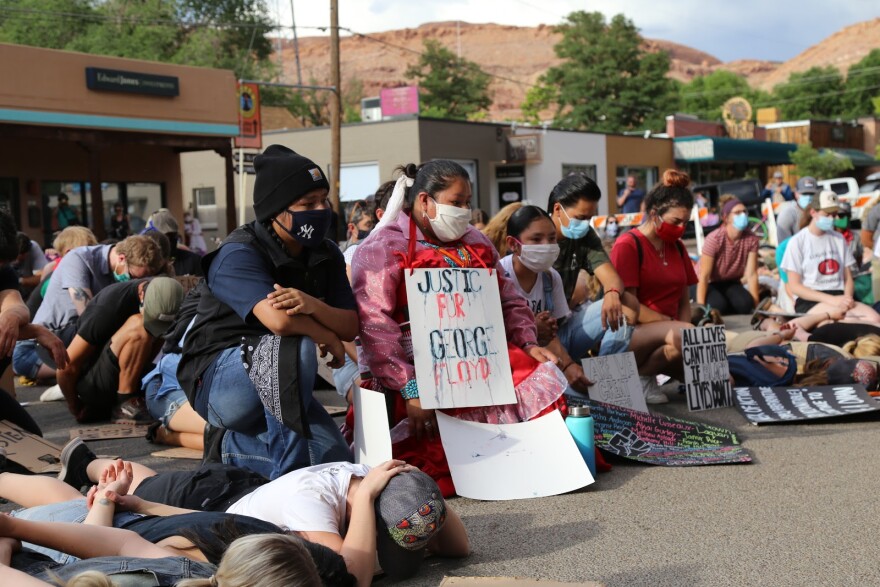MOAB—Watching hundreds of people take to the streets in Moab on Friday night to demand an end to racial inequality and police brutality brought tears to Desirae Miller’s eyes.
“I spent so many nights crying myself to sleep,” said Miller, a 23-year-old black woman who moved to town three years ago. “Because I didn’t think there was a space for this in Moab.”
Miller helped organize the protest, which aimed to draw attention to racial inequality across the U.S. and in Moab, where the population of some 5,300 is only 1% black. The protest followed a 100-person vigil earlier in the week for George Floyd, a black man killed in custody by police in Minneapolis on May 25. But over 400 people came out Friday night, according to Moab police estimates, despite windy conditions and rain.
“For me, to see this many allies in a predominantly white space and town was incredible,” Miller said. “It feels as if the voices of the marginalized were finally heard.”
Moab officials shut down Center Street in the middle of town to make space for protesters. Participants marched around downtown and eventually blocked off Highway 191, also known as Main Street.
“I know a lot of people are scared to be out here right now,” said Ash Howe, a 16-year-old trans man who was also an organizer. “But it’s time for us to stand up against scary situations and have these difficult conversations in these small towns.”
Nomanie Tsosie, a 22-year-old Navajo woman, marched with the group. She grew up in Moab and said she has experienced racism there.
“In school and work, it’s been hard,” she said. “There’s more favoritism for a white person than a colored person like me.”
Eventually, the group arrived at the intersection of Center and Main and sat down in the street.
Police Chief Bret Edge said that blocking Main Street was not in the organizer’s original plan. After about an hour, he asked them to move back to Center Street, which remained closed throughout the evening for the protest.
Edge, who knelt with the protesters during a tribute to George Floyd, said he was “happy to provide protesters a safe place to share their message,” and that he was also happy to sign a proclamation issued in conjunction with the mayor of Moab on June 4, the day before the protest.
It lays out a broad course of action for reviewing the police department’s policies and allowing residents to recommend changes.

Howe said he plans to ask Edge to consider implementing “8 Can’t Wait,” a series of reforms suggested by Campaign Zero, a national campaign against police brutality.
“That’s mainly what we’re here for tonight is to promote change and see something different from what our parents and their parents had,” Howe said. “Because it’s been the same way since the beginning, and it’s been time for change for a long time.”


